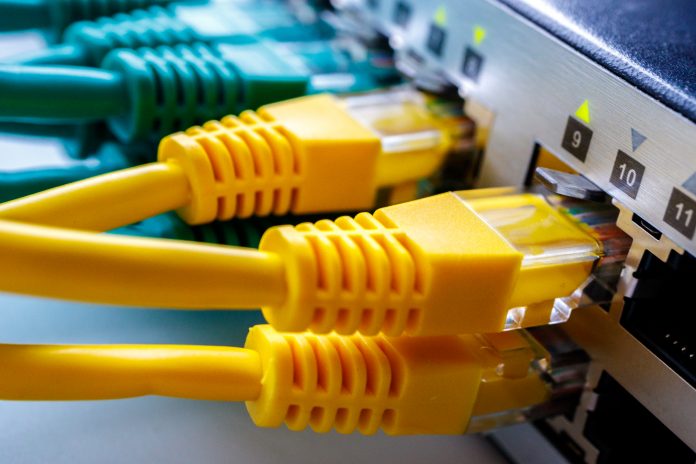Experts predict that 5G will be able to reach speeds of up to 10,000Mb per second (10GB/s), but how does it compare with other Internet technology – and what will its impact be?
With the introduction of 5G on the not-so-distant horizon, how the next evolution of mobile data will impact us? Justin Ellis, Senior Data Specialist at Comms Express investigates.
Remember that shrill warbling of the dial-up connection and fighting the family for the phone line? For those who had the delight of experiencing dial-up, you may have less fond memories of its not-so-impressive download speed of 56.6 kbits/s, which was just about enough to receive a text-based email.
Two decades on, the world of information sharing is a very different place. Broadband brought unlimited Internet into our homes at up to 17Mb/s, but it was 3rd Generation, otherwise known as 3G, that really took the UK and the world by storm, introducing a mobile phone network with a greater data bandwidth than ever before. This enabled mobile phone users to browse the web, email and send pictures and videos on the go via their mobile phones.
“Are we nearly there yet?!” With an internet speed of up to 80Mb/s, 4G LTE (‘long term evolution’) quadrupled the speed of 3G and quietened the familiar call from the back seat of the car. As tablet demand increased, little ones (and relieved parents) could now stream video and live TV on the go. Globally, mobile data now reaches a staggering 3.7 exabytes a month
Then, of course, there’s Fibre optic, which started to roll out well before even 3G – but was very dependent on where you lived. Today’s fibre optic runs at up to 300Mb/s, enabling fast gaming and Ultra-HD films.
What is 5G?
With speeds of 10,000Mb/s, 5G – the fifth generation of wireless networking technology – could download 100Mb of data in 0.080 seconds.* It’s hard to actually put that into perspective, which is why Comms Express has created the 100mb-race – a fun interactive to highlight the speed of 5G against other technologies.
But simply put, the average smartphone user can expect speeds at least 10-20 times faster than the 4G we’re using today.
While this is handy for internet browsing, 5G has the potential to unlock far greater technological possibilities. Heard of the ‘Internet of Things’? In layman’s terms, the IOT is a term used to describe devices connected to the internet that talk to one another, and us. (Think controlling your home thermostat from an app on your phone, for example). It’s not a brand-new concept, but its reality is very much still in its infancy. Enter 5G.
What will be the impact of 5G?
Mobile data use has expanded massively over the past few years. Users are demanding high-speed data at all times, particularly for apps, games and streaming. 5G will pool bandwidth to improve both range and performance, giving users a paradigm shift in speed, reliability and capacity. It has the potential to not only improve today’s experiences – but to enable completely new ones.
In a rapidly technologically advancing world where the demand for smart technology is only just beginning, the super-fast speeds 5G can promise are becoming a necessity. The 5G rollout will enable us not only to cope with and support ever-larger data requirements but also to make new applications such as augmented reality, connected vehicles and the Internet of Things a reality. These are tasks that 4G is struggling with and failing to bring fully to fruition today.
The vision of 5G reaches far beyond streaming funny cat videos and into the realms of fully connected smart homes, driverless vehicles, transport updates in real time, or even remote surgical procedures. The possibilities for industry, like farming and manufacturing, are also endless.
Does 5G exist yet?
Yes – and no. Verizon in the US has already launched 5G broadband service in 4 US cities: Houston, Texas; Los Angeles, California; Sacramento, California; and Indianapolis, Indiana. But this isn’t the true mobile 5G we can eventually come to expect. The first 5G enabled smartphones are expected to be available as easy as this year but expect 2020 to be the year it really takes off.
Editor's Recommended Articles
-
Must Read >> Smart thinking: How local councils can embrace 5G





























